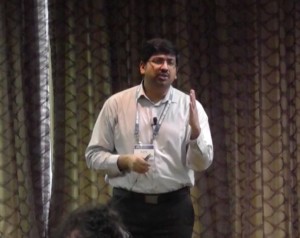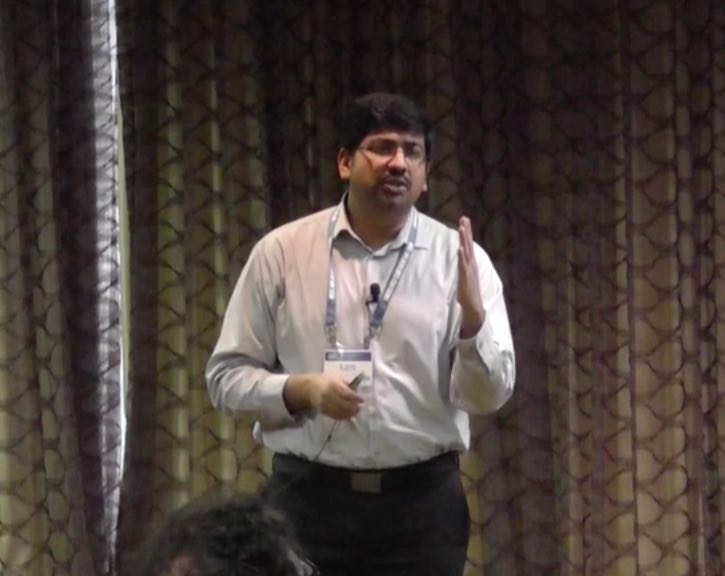 In this video from the 2017 Intel HPC Developer Conference, Prabhat from NERSC and Michael F. Wehner from LBNL present: Deep Learning for Science.
In this video from the 2017 Intel HPC Developer Conference, Prabhat from NERSC and Michael F. Wehner from LBNL present: Deep Learning for Science.
“Deep Learning has revolutionized the fields of computer vision, speech recognition and control systems. Can Deep Learning (DL) work for scientific problems? This talk will explore a variety of Lawrence Berkeley National Laboratory’s applications that are currently benefiting from DL. We will review classification and regression problems in astronomy, cosmology, neuroscience, genomics and high-energy physics. We will share results from a deep-dive into the problem of detecting extreme weather patterns in climate simulations. Lastly, we will conclude with short and long-term challenges at the frontier of DL research, and speculate about the role of DL and AI in the future of scientific discovery.”
Prabhat leads the Data and Analytics Services team at NERSC. In this role, he is responsible for deploying the Big Data stack on NERSC platforms, spanning capability areas in Data Analytics, Management, Workflows, Visualization, Transfer and Access. Prabhat is the Director of the Big Data Center at NERSC, which is enabling capability Data applications to run on the Cori supercomputer. Prabhat’s current research interests span Deep Learning, Machine Learning and Applied Statistics. Prabhat received an ScM in Computer Science from Brown University (2001) and a B.Tech in Computer Science and Engineering from IIT-Delhi (1999). He is currently pursuing a PhD in the Earth and Planetary Sciences Department at U.C. Berkeley.
Michael F. Wehner is a senior staff scientist in the Computational Research Division at the Lawrence Berkeley National Laboratory. Dr. Wehner’s current research concerns the behavior of extreme weather events in a changing climate, especially heat waves, intense precipitation, drought and tropical cyclones. Before joining the Berkeley Lab in 2002, Wehner was an analyst at the Lawrence Livermore National Laboratory in the Program for Climate Modeling Diagnosis and Intercomparison. He is the author or co-author of over 165 scientific papers and reports. He was a lead author for both the 2013 Fifth Assessment Report of the Intergovernmental Panel on Climate Change and the 2nd,3rd and 4th US National Assessments on climate change. Dr. Wehner earned his master’s degree and Ph.D. in nuclear engineering from the University of Wisconsin-Madison, and his bachelor’s degree in Physics from the University of Delaware.




